Introduction
In today's digital landscape, the success of your blog content heavily depends on its visibility across social media platforms. However, the challenge lies not just in creating compelling content, but in effectively distributing it to reach your audience wherever they are. This is where the power of automation can transform your content distribution strategy.
By combining n8n's workflow automation capabilities with DeepSeek V3's artificial intelligence, you can create a sophisticated system that not only shares your Ghost blog posts across platforms like X (formerly Twitter), LinkedIn, Mastodon, and Bluesky etc., but also tailors each post to resonate with the unique characteristics of each platform's audience.
The Strategic Value of Content Automation
Content automation represents more than just a technical solution – it's a strategic shift in how we approach digital content distribution. Let's explore the three key benefits that make content automation invaluable for modern content creators.
Save Time and Reduce Repetitive Tasks
Manually sharing content across multiple platforms can be a tedious process. Automation eliminates the need for repetitive tasks, allowing you to focus on creating high-quality content.
Ensure Consistent and Timely Social Media Updates
Automation ensures that your social media updates are consistent and timely. As soon as a new blog post is published, it can be automatically shared across all your platforms without any delay.
Optimize Social Media Posts for Each Platform Using AI
Different social media platforms have different audience expectations and content formats. DeepSeek V3/ChatGPT can generate platform-specific posts, ensuring that your content is optimized for each platform.
What is n8n?
n8n is an open-source workflow automation tool that allows you to connect different apps and services to create automated workflows. It is highly flexible and can be used to automate a wide range of tasks, from simple data transfers to complex business processes. n8n uses a visual interface where you can drag and drop nodes to create workflows, making it accessible even for those without extensive programming knowledge.
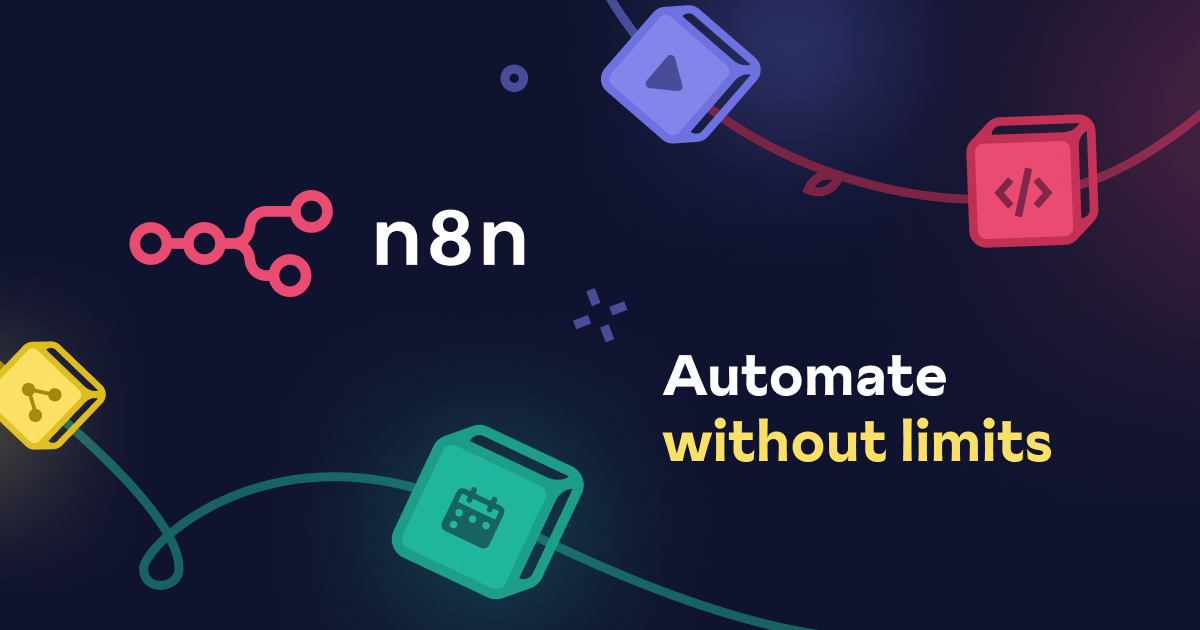
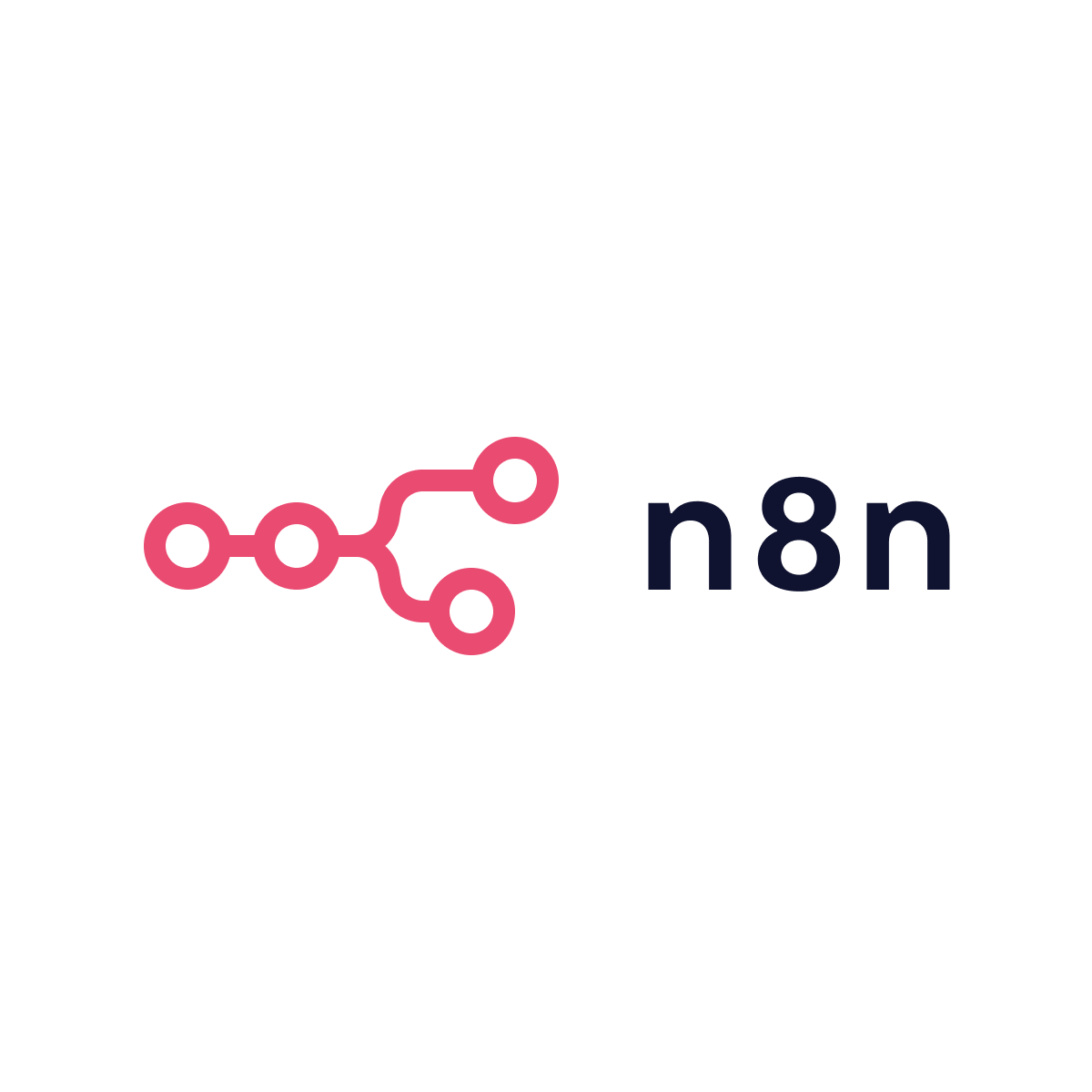
Key Features
- Open Source: n8n is free to use and can be self-hosted, giving you full control over your data.
- Extensible: With a wide range of built-in nodes and the ability to create custom nodes, n8n can integrate with almost any service.
- User-Friendly: The visual workflow editor makes it easy to design and debug automation workflows.
- Community Support: n8n has a growing community that contributes nodes, shares workflows, and provides support.
Cost-Effective Solution for Social Media Automation
While traditional social media management tools like SocialPilot, Buffer, and Sprout Social offer convenient solutions, they come with significant monthly costs.
| Tool | Pricing |
|---|---|
| SocialPilot | Starts at $25/Month |
| Agorapulse | Starts at $69/Month |
| Hootsuite | Starts at $99/Month |
| Buffer | Starts at $36/Month |
| Sprout Social | Starts at $199/Month |
n8n presents a compelling alternative that can achieve the same results without the recurring expenses. By self-hosting n8n on your own server or computer, you can create sophisticated social media automation workflows completely free of charge. This self-hosted approach not only eliminates monthly subscription fees but also gives you full control over your automation infrastructure. The only real costs you'll incur are minimal server hosting expenses if you choose a cloud provider, or practically nothing if you run it on existing hardware.
Beyond cost savings, n8n's open-source nature means you can customize and extend its functionality to match your exact needs, making it a powerful and financially prudent choice for content creators and businesses looking to automate their social media presence without compromising on capabilities.
Why Choose DeepSeek V3 Over ChatGPT?
When it comes to generating AI-powered content, DeepSeek V3 offers a compelling alternative to ChatGPT. One of the primary reasons to choose DeepSeek V3 is its cost-effectiveness. The API pricing for DeepSeek V3 is significantly cheaper compared to ChatGPT, making it an attractive option for those looking to automate content generation without breaking the bank.
| Price Type | Token Type | GPT-4 | DeepSeek-V3 |
|---|---|---|---|
| Input | Processing tokens in prompts | $2.50 per million tokens | $0.14 per million tokens |
| Output | Tokens generated by the model | $10.00 per million tokens | $0.28 per million tokens |
Additionally, the quality of responses from DeepSeek V3 is remarkably similar to ChatGPT, ensuring that your social media posts are just as engaging and optimized for each platform. By leveraging DeepSeek V3, you can achieve high-quality content generation at a lower cost, making it an ideal choice for automating your content sharing workflow.
| Benchmark | Description | GPT-4 | DeepSeek-V3 |
|---|---|---|---|
| MMLU | Tests knowledge across 57 subjects including mathematics, history, law, and more. | 88.7% (5-shot) | 88.5% (EM) |
| MMLU-Pro | A more robust benchmark with harder questions, larger choice sets, and reduced prompt sensitivity. | 74.68% (Source) | 75.9% (EM) |
| MMMU | Tests understanding across text, images, audio, and video. | 69.1% (Source) | Not available |
| HellaSwag | A challenging sentence completion benchmark. | Not available | 88.9% (10-shot) |
| HumanEval | Evaluates code generation and problem-solving capabilities. | 90.2% (0-shot pass@1) | 82.6% (pass@1) |
| MATH | Tests mathematical problem-solving abilities across various difficulty levels. | 75.9% (0-shot) | 61.6% (4-shot) |
| GPQA | Tests PhD-level knowledge in chemistry, biology, and physics. | 53.6% (0-shot) | 59.1% (pass@1) |
| IFEval | Tests adherence to instructions and accuracy across various tasks. | Not available | 86.1% (Prompt Strict) |
Workflow Overview
The heart of this automation lies in the seamless integration of Ghost, n8n, and DeepSeek V3/ChatGPT to transform your blog updates into perfectly crafted social media posts. Here’s how the workflow functions step-by-step
flowchart TD
A[New Ghost Blog Post Published] --> B[Ghost Webhook Triggered]
B --> C{Verify Webhook Signature}
C -->|Invalid| D[Log Error & Send Alert]
C -->|Valid| E[Generate AI Content]
E --> F[X/Twitter Post]
E --> G[LinkedIn Post]
E --> H[Mastodon Post]
E --> I[Bluesky Post]
F & G & H & I --> J{Check Publishing Status}
J -->|Success| K[Send Success Notification]
J -->|Failure| L[Log Error & Send Alert]
style A fill:#e6f3ff
style E fill:#e6ffe6
style J fill:#fff0e6
style D fill:#ffe6e6
style L fill:#ffe6e6
style K fill:#e6ffe6
Step-by-Step Guide
Complete Workflow
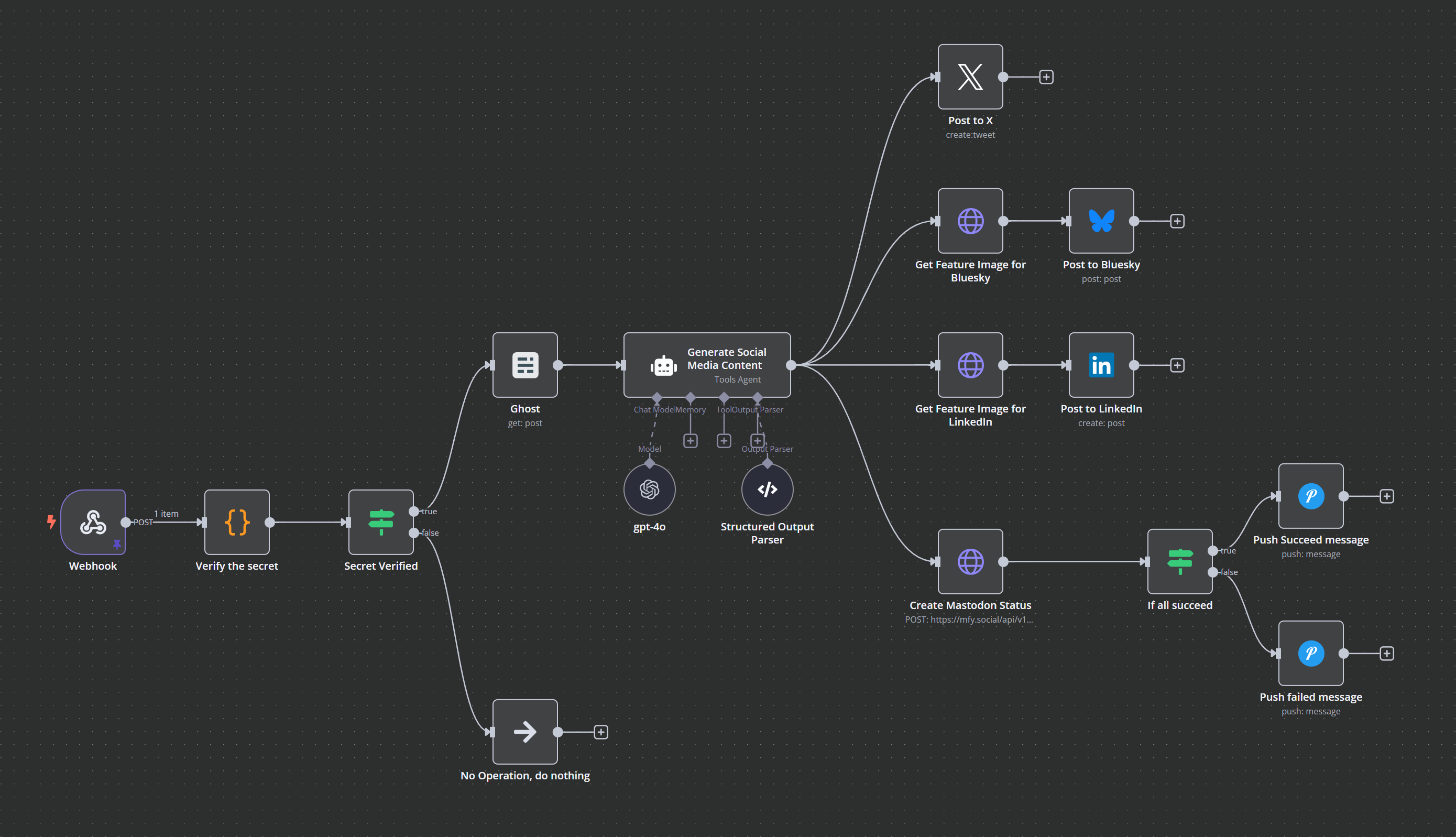
1. Setting Up the Ghost Webhook
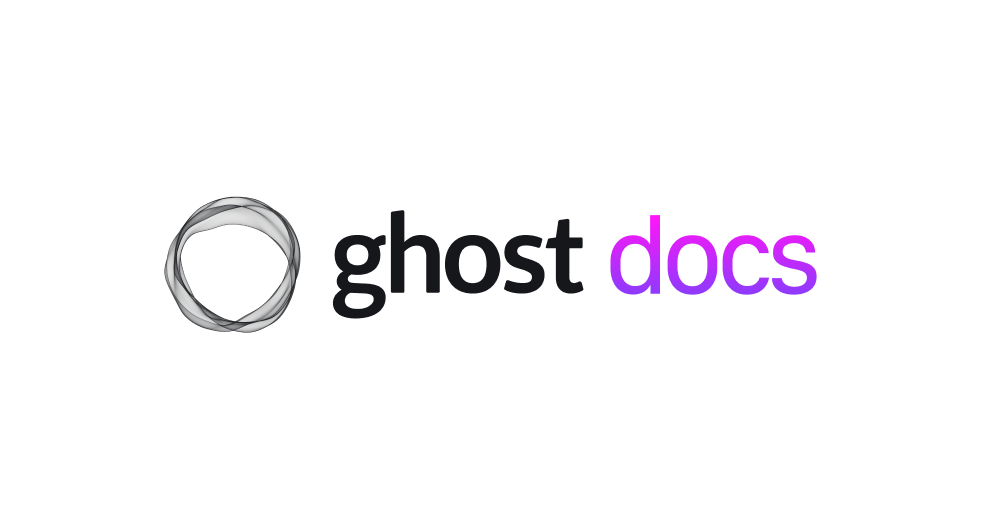
The first step in this automation process is configuring a webhook in the Ghost blog. Ghost provides built-in support for webhooks, allowing you to trigger external workflows whenever a blog post is published.
- Navigate to your Ghost admin dashboard.
- Go to Settings > Integrations and create a new custom integration.
- In the custom integration settings, add a webhook with the event "Post Published".
- Set the webhook URL to your n8n instance's webhook node endpoint (e.g.,
https://your-n8n-instance/webhook/blog-post).
This webhook sends data about the newly published post, including every details you need.
2. Verifying Webhook Security
To ensure that the incoming webhook requests are authentic and have not been tampered with, we use cryptographic verification.
In n8n, this is implemented with a Code Node that validates the request signature provided by Ghost.
Here’s how the verification works:
- Ghost sends a signature in the
x-ghost-signatureheader. This signature is a hash of the webhook payload and a secret key. - In n8n, the payload is re-hashed using the same secret key, and the result is compared to the signature from Ghost.
- If the values match, the request is considered authentic.
Example signature verification code:
const crypto = require('crypto');
function verifyGhostSignature(items) {
const item = items[0];
const headers = item.json.headers;
const signature = headers['x-ghost-signature'];
if (!signature) {
return { verified: false, error: 'No signature found' };
}
const [sigHash, timeStamp] = signature.split(', ');
const [, hash] = sigHash.split('=');
const [, ts] = timeStamp.split('=');
const secret = {YOUR_SECRET};
const bodyString = JSON.stringify(item.json.body);
const message = `${bodyString}${ts}`;
const hmac = crypto.createHmac('sha256', secret);
hmac.update(message);
const computedHash = hmac.digest('hex');
return {
verified: computedHash === hash,
debug: {
secret: secret,
signature: signature,
timestamp: ts,
computedHash: computedHash
}
};
}
return verifyGhostSignature(items);3. Generating Social Media Content
This is where the magic happens—DeepSeek V3 is used to craft optimized content for each social media platform. In n8n, the blog data captured from the webhook is passed to DeepSeek’s API.
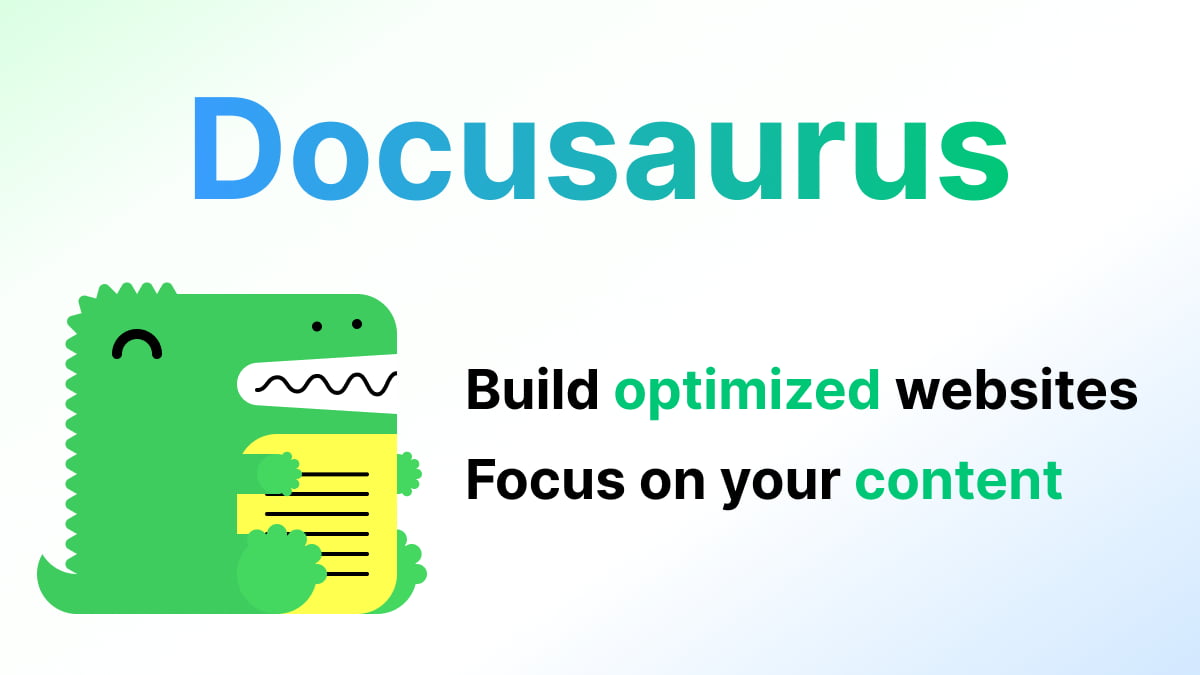
In n8n, this can be done by a HTTP Request node:
- Set the method as
POST. - Set the URL as
https://api.deepseek.com/chat/completions. - Set Authentication as
Generic Credential Type,Header Auth. - Use
Authorizationas the name of the header andBearer $tokenas the value. - Set the request body with proper prompt.
For example, a prompt to generate a tweet might look like:
{
"messages": [
{
"content": "You are a social media specialist. Create ONE tweet that must be under 240 characters total (including spaces and the URL). Summarize the blog post's key message in a conversational tone with 1-2 relevant emojis. Include the URL at the end. Do not use hashtags. No markdown formatting. Note: Count each character carefully - the tweet must fit Twitter's limit even with the full URL included.",
"role": "system"
},
{
"content": "Title: {{ encodeURIComponent($json.title) }}, Content: {{ encodeURIComponent($json.html) }}, URL: {{ encodeURIComponent($json.url) }}",
"role": "user"
}
],
"model": "deepseek-chat",
"frequency_penalty": 0,
"max_tokens": 4096,
"presence_penalty": 0,
"response_format": {
"type": "text"
},
"stop": null,
"stream": false,
"stream_options": null,
"temperature": 1,
"top_p": 1,
"tools": null,
"tool_choice": "none",
"logprobs": false,
"top_logprobs": null
}Example outputs:
- Tweet for X: "Want to save time? 🚀 Automate your blog sharing! Check out my guide✨: https://fanyangmeng.blog/from-blog-to-social-media-automating-content-sharing-with-n8n-and-deepseek-v3/"
DeepSeek ensures that each platform gets tailored content optimized for engagement.
4. Posting to Social Media
Posting to social media is the most intricate part of this automation workflow. Each platform has its unique API structure and content requirements, making this step the most dynamic. Below is how the workflow handles posting to each platform, leveraging n8n’s integration capabilities and API flexibility.
a. Posting to X (formerly Twitter)
For X, the workflow utilizes the Twitter OAuth2 API integration in n8n to publish tweets. The generated tweet content from DeepSeek V3 is used as the post text.
You can follow n8n's official guidelines on how to make the X node work properly for creating post.

b. Posting to Bluesky
Bluesky’s API offers a unique way to post updates with metadata and images, and the workflow integrates seamlessly using a custom n8n node. This integration utilizes the Bluesky Nodes for n8n, which can be installed and configured easily.
Installing the Bluesky Node
To set up the Bluesky integration in your n8n instance:
- Navigate to Settings → Community Nodes.
- Click Install and input the node name:
@muench-dev/n8n-nodes-bluesky. - Once installed, the node will be available in your workflows.
The node is maintained on GitHub, where you can find documentation and updates.
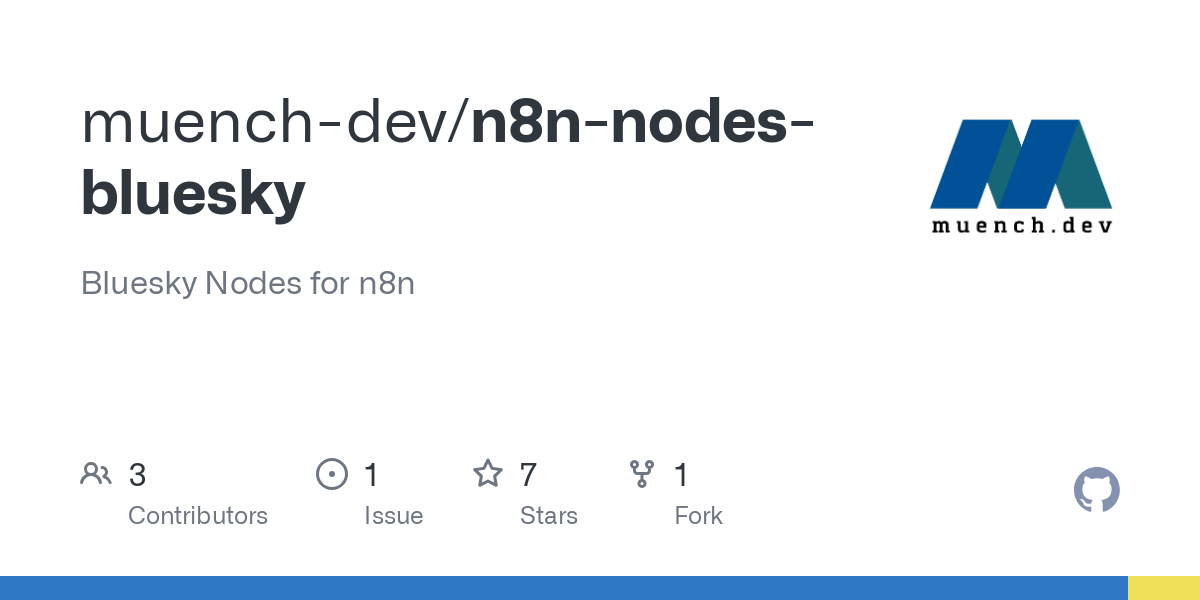
Setting Up Authentication
To authenticate with Bluesky's API, you’ll need to generate an App Password:
- Log in to your Bluesky account.
- Go to Settings → App Passwords (Direct Link).
- Create a new app password and note it down, as it will be used in the node’s credentials configuration.
Steps in the Workflow
- Set an extra "Get Feature Image for Bluesky" HTTP Request node fetches the blog post’s featured image as the binary data.
- The "Post to Bluesky" node uses the custom integration to create a post with:
- Text: The Bluesky-optimized content generated by DeepSeek V3.
- Website Card Metadata: Includes:
- URI: The blog post URL.
- Title: The blog title.
- Description: The blog’s excerpt or summary.
- Binary Property: The featured image fetched earlier.
c. Posting to LinkedIn
LinkedIn requires a more formal approach. The workflow uses the LinkedIn node in n8n to share posts.
For the integration, you can find out the official documentation here:

d. Posting to Mastodon
Mastodon operates on decentralized instances, each with its own unique API. Since n8n does not have a built-in Mastodon integration, we use the official Mastodon API documentation to implement the functionality using HTTP Request nodes. Specifically, the workflow relies on the /media and /statuses endpoints to upload images and publish status updates.

Steps in the Workflow
- Download the Blog’s Featured Image
- Set up a "Get Feature Image for Mastodon" node fetches the featured image from the blog post's URL (HTTP Request node).
- This image is prepared for upload to Mastodon.
- Upload the Image to Mastodon
- Set up a "Upload Image" node sends a POST request to the
/mediaendpoint of the Mastodon API. This uploads the image to the Mastodon instance and returns amedia_idthat can be used in the status update.
- Set up a "Upload Image" node sends a POST request to the
e. Workflow Logic for Success and Failures
After posting to all platforms:
- The workflow checks the success of each post using conditional logic.
- If all platforms successfully receive their posts, the workflow triggers the "Push Succeed Message" node, notifying you of the success.
- If any post fails (e.g., due to API issues, invalid tokens, or image upload errors), the workflow triggers the "Push Failed Message" node with details about the issue.
Conditional Logic Node:
- Checks whether all social media post nodes return a valid ID or URI.
- Sends success or failure notifications accordingly.
Benefits and Results
Implementing this automated content distribution system yields significant advantages that extend beyond mere convenience. Let's examine the tangible benefits that make this solution particularly valuable for content creators and organizations.
Quantifiable Time Savings
The automation workflow dramatically reduces the time spent on content distribution:
- Manual posting across platforms typically takes 30-45 minutes per article
- With automation, the entire process executes in under 2 minutes
- For a blog publishing 3 articles per week, this saves approximately 6-8 hours monthly
- The saved time can be reinvested in content creation and strategy
Enhanced Content Consistency
The AI-powered approach ensures:
- Uniform brand voice across all platforms while maintaining platform-specific optimization
- Zero risk of forgetting to post on any platform
- Consistent formatting and structure in social media posts
- Automatic inclusion of all necessary elements (featured images, URLs, mentions)
Cost-Effectiveness
When compared to traditional social media management tools:
- Eliminates subscription costs ranging from $25-$199/month
- Minimal hosting costs for n8n (typically $5-10/month on basic cloud hosting, free for homelab)
- Significantly reduced API costs using DeepSeek V3 compared to GPT-4o
Conclusion
The integration of n8n, Ghost, and DeepSeek V3 represents a powerful approach to content distribution that combines efficiency, intelligence, and cost-effectiveness. This automation solution not only streamlines your workflow but also ensures that your content reaches its intended audience in the most engaging format for each platform.
By leveraging open-source tools and cutting-edge AI capabilities, content creators can build a robust distribution system that scales with their needs without incurring the substantial costs associated with traditional social media management platforms. The flexibility of n8n allows for continuous refinement and customization of the workflow, while DeepSeek V3's AI ensures that each social media post is optimized for maximum engagement.
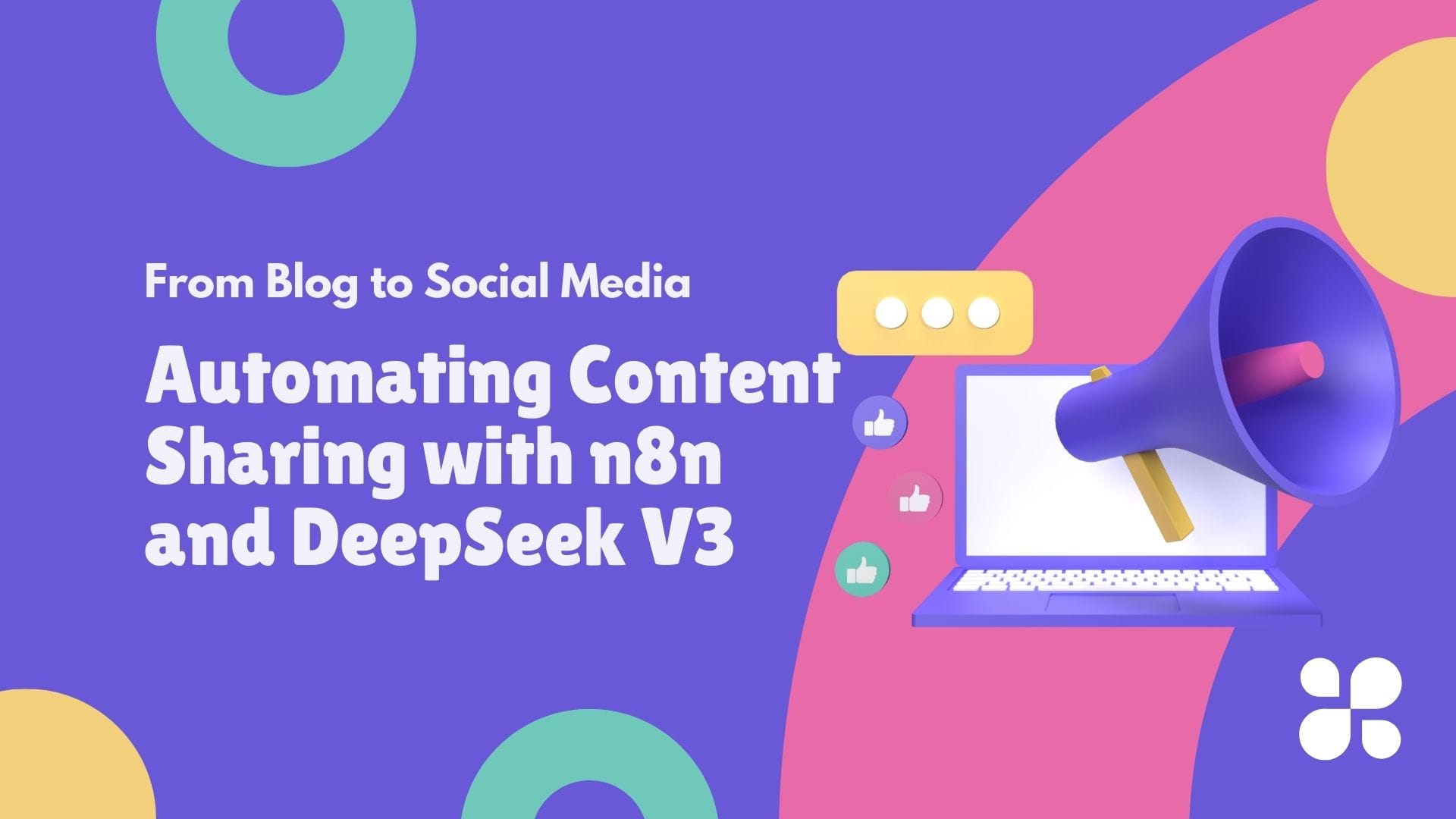








Discussion